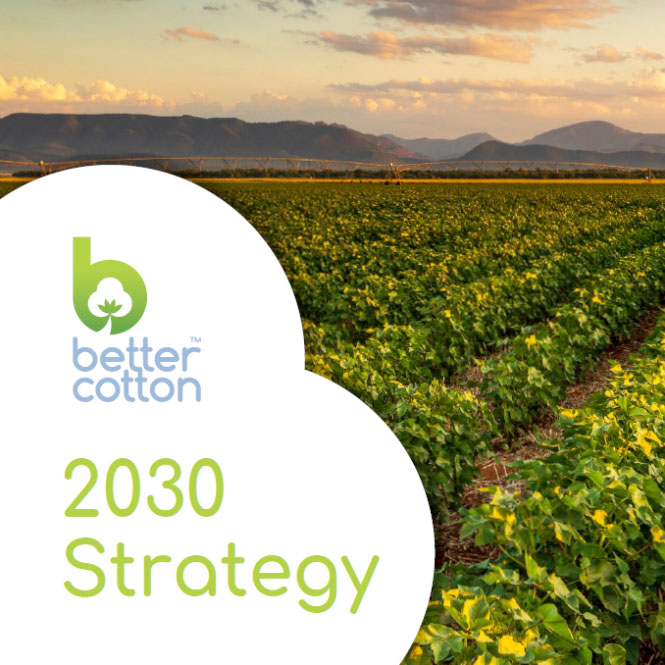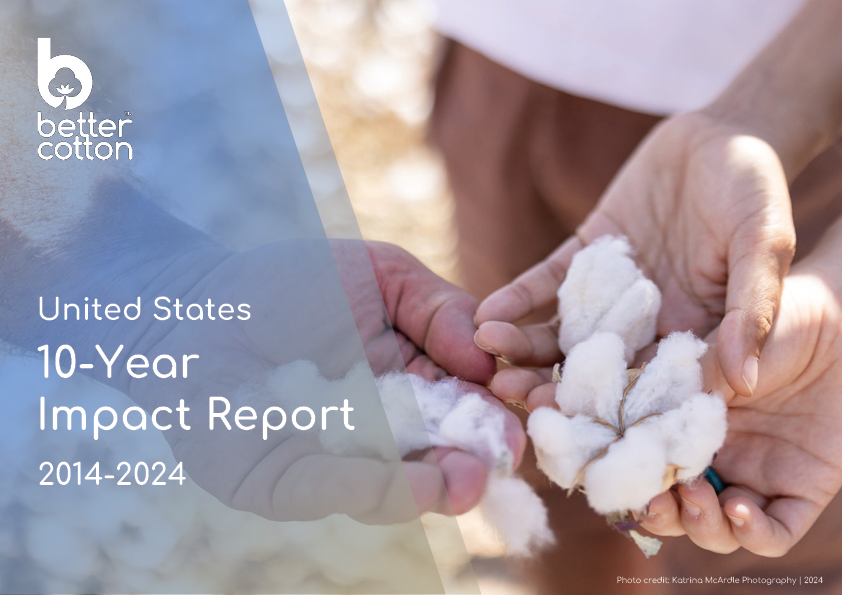- Who we are
- What we do
In just over 10 years we have become the world’s largest cotton sustainability programme. Our mission: to help cotton communities survive and thrive, while protecting and restoring the environment.
- Where we grow
Better Cotton is grown in 22 countries around the world and accounts for 22% of global cotton production. In the 2022-23 cotton season, 2.13 million licensed Better Cotton Farmers grew 5.47 million tonnes of Better Cotton.
- Our impact
- Membership
Today Better Cotton has more than 2,700 members, reflecting the breadth and diversity of the industry. Members of a global community that understands the mutual benefits of sustainable cotton farming. The moment you join, you become part of this too.
- Associate Membership
- Civil Society Membership
- Producer Organisation Membership
- Retailer and Brand Membership
- Supplier and Manufacturer Membership
- Find Members
- Member Monitoring
- Better Cotton Platform
- myBetterCotton
- Resources – Better Cotton Conference 2022
- Complaints
- Whistleblowing
- Safeguarding
- Get Involved in the Better Cotton Programme
- Thank you for contacting us
- Better Cotton’s Data Privacy Policy
- Log in
- Members’ Area
- Request for Proposals
- Better Cotton Cookie Policy
- Web Reference
- Measuring Cotton Consumption
- How to Implement the Chain of Custody Standard
- Resources – Better Cotton Conference 2023
- Certification Bodies Old
- Latest
- Sourcing
- Latest
The founding premise of Better Cotton is that a healthy sustainable future for cotton and the people that farm it is in the interests of everyone connected with it.
Let us help you find what you’re looking for
Results for {phrase} ({results_count} of {results_count_total})Displaying {results_count} results of {results_count_total}
In April 2020, BCI formed the Task Force on Forced Labour and Decent Work to review the current global Better Cotton Standard System. The aim of the Task Force was to highlight gaps and develop recommendations to improve the effectiveness of this system in identifying, preventing, mitigating and remediating forced labour risks. The group was comprised of experts from civil society, retailers and brands, and responsible sourcing consultancies.
The Task Force worked to review current BCI systems, discuss key issues and gaps, and develop proposed recommendations. The process included extensive consultations with a wider group of stakeholders, and culminated in a comprehensive report, published in October 2020 and available in full on the BCI website.
The BCI Leadership Team and Council have now completed a full review of the report’s findings, producing a formal response that also summarises the work that BCI has already carried out as of January 2021. The response outlines BCI’s expected short, mid, and long-term priorities to strengthen our systems on forced labour and decent work.
Alan McClay, CEO of BCI said, ”Decent work and forced labour are crucial sustainability issues within cotton production. At BCI we are committed to strengthening further our capabilities on these issues. As we launch our 2030 strategy, the Task Force recommendations help us do that. The work to implement these recommendations is already underway.”
The response welcomes the comprehensive findings of the Task Force and its identification of multiple areas where BCI will continue to focus more resources and effort. The Task Force has recognised the potential that BCI has – as a truly global network of partners – to enact change across millions of cotton farmers and workers.
The response also recognises the importance of embedding BCI’s forced labour and decent work efforts within the broader BCI strategy. This is reflected in BCI’s 2030 strategy, which includes a strong focus on decent work. We expect that work in some of these recommendation areas will span most of the next decade and even beyond.
BCI will use a phased approach to implement the activities outlined in the plan, tackling quick wins and high-priority areas promptly, whilst maintaining a long-term vision on some of the more challenging work areas that will require dedicated funding and resources. This approach will be informed by risk assessment; focusing first on areas where forced labour risks are high and BCI has a significant footprint.
BCI will look to actively collaborate with others on some of these key challenges, such as effective tools for farm workers to raise grievances. These challenges are faced across the agricultural sector, and BCI expects to work not only with local experts and grassroots organisations, but also with other initiatives to share learnings and pioneer new tools.
BCI has lost no time getting started on some of the key recommendations of the task force and will bring these into effect in time for the next season, beginning in March in the Northern Hemisphere. The BCI Leadership team is extremely grateful to the Task Force members for dedicating their time and expertise to help BCI examine our current approach and forge a path forward to transform our forced labour and decent work capabilities.
A summary of BCI’s plan to onboard the Task Force’s recommendations is available on the BCI website and can be found here.


